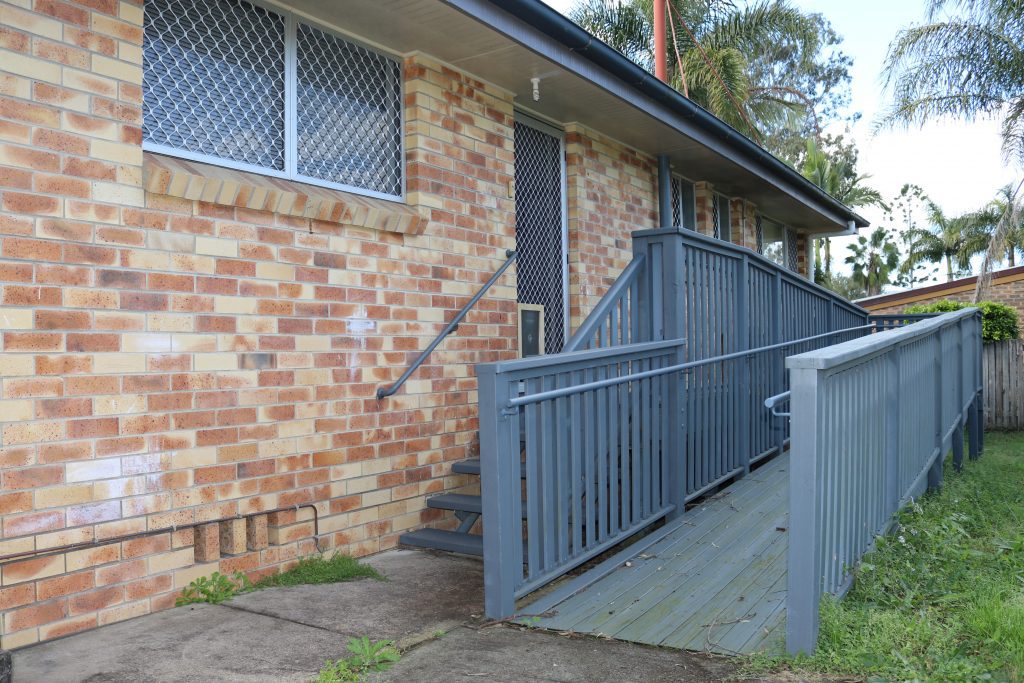RESPITE CARE SERVICES

Horizon Community Services: Elevating Lives Through Excellence in Disability Respite Care.
Respite care services play a crucial role in enhancing the well-being of individuals with disabilities by offering them a temporary break from their daily routines. Designed to provide participants with valuable opportunities for relaxation, vacations, or outings, disability Respite Care Gold Coast aims to create a supportive environment that promotes both physical and emotional rejuvenation.
Horizon Community Services stands out as a premier provider of respite care services, ensuring unparallelled support for individuals with disabilities. Committed to delivering top-notch care, Horizon goes beyond the conventional, offering a range of respite options that cater to diverse needs, making it the preferred choice for those seeking exceptional respite care solutions.

What Is Included In Respite Care Services:?
It is dedicated to fostering independence, promoting social inclusion, and offering much-needed relief for individuals with disabilities. Here’s what’s included:
- Personalised Plans: Individualised respite care plans are crafted, addressing specific requirements and preferences of participants, ensuring a tailored and supportive experience.
Flexible Options: Respite care in Australia, offers flexible scheduling to accommodate varying participant needs and preferences. - Rejuvenating Retreats: Participants have access to rejuvenating retreats that enable them to enjoy quality time away from their homes, fostering relaxation and personal well-being.
- Professional Support: Skilled professionals within respite care services provide the necessary support, ensuring the safety and comfort of participants during their respite experiences.
- Transportation Assistance: Transportation services are often included, facilitating seamless travel to and from respite care locations, allowing participants to focus on enjoying their break.

Benefits Of Opting For Respite Care Services
Engaging in respite care services in Australia opens doors to a myriad of benefits, catering to the unique needs of individuals requiring support and respite. These services, including respite day care centre options, offer essential advantages that extend beyond the conventional realms of care. Here’s a breakdown:
- Flexible Respite Options: Availability of diverse respite services, such as respite in-home services, providing flexibility based on participant preferences.
- Personalised Care Plans: Tailored respite care plans cater to individual needs, ensuring a comprehensive and personalised approach to support.
- Promotion of Independence: Respite care services empower individuals, fostering independence by offering opportunities for self-expression and decision-making.
- Enhanced Well-being: The provision of a supportive environment promotes mental and emotional rejuvenation, contributing to overall well-being.
- Time for Relaxation and Reflection: Respite care services offer individuals the chance to unwind, relax, and reflect, promoting a positive mindset.

Signs That Show You Need Respite Care Services
- Fatigue and Exhaustion: Persistent fatigue and exhaustion may indicate the need for respite care services.
- Decreased Personal Well-being: A decline in personal well-being and self-care could signify the necessity for respite support.
- Social Isolation: Increasing social isolation may suggest the need for community engagement through respite daycare centres.
- Increased Stress Levels: Elevated stress levels can be a sign that respite care services are necessary for relief.
- Challenges in Daily Activities: Struggles with daily activities may indicate a need for additional support from respite services.
- Changes in Behaviour: Observable changes in behaviour, mood swings, or irritability may signal the need for respite care.

Why Choose Us?
- Tailored Care Solutions: Horizon offers personalised respite care services, catering to the unique needs of individuals with disabilities.
- Diverse Respite Options: From in-home care to community-based programmes, Horizon provides a comprehensive range of respite options, ensuring flexibility and inclusivity.
- Commitment to Well-being: Horizon prioritises the well-being of participants, fostering an environment that promotes physical, emotional, and social rejuvenation.
- Experienced and Compassionate Staff: Our dedicated team at Horizon comprises experienced professionals committed to delivering compassionate and high-quality care services.
- Innovation in Care: Horizon embraces innovative approaches to disability respite care, staying at the forefront of industry advancements to provide cutting-edge services.
Horizon Community Services:
Discover unparallelled support and tailored disability respite care services with Horizon Community Services. Your well-being is our priority. Contact us today to explore the exceptional respite care options that await you. Embrace a brighter tomorrow with Horizon – your trusted partner in care.
Contact:
Quality care for your loved ones in Brisbane, the Gold Coast & Darwin
When it comes to reliable respite care services in Darwin, Brisbane Northside and the Gold Coast, Horizon Community Services stands out as the go-to provider. Our professional team is committed to delivering comprehensive and customised services tailored to your specific requirements.
At Horizon Community Services, we understand that carers and families may need time away or have personal matters to attend to. Our respite care option provides a safe and nurturing environment for your loved ones, ensuring they receive the care and support they need during your absence.

Premium Respite Care Services for Your Comfort and Well-being
Here at Horizon Community Services, we are committed to providing compassionate disability respite care on the Gold Coast, Darwin and Brisbane area.
We cater for a range of circumstances, so whether you need overnight, short-term, or long-term respite stay, we have a comfortable, welcoming space for you.
If you need in-home care services, our support workers can provide you with unparalleled assistance in the comfort of your home.
As our respite guest, you can have access to the services, programs, and activities that our team organise regularly. We also have spacious, lovely spaces to entertain your friends and family whenever they visit.
Our respite care services include:
- Clean bed and linen
- Personal locker and chair.
- 24-hour nursing care
- Freshly-cooked meals
- Access to Social Activities
- Help with daily tasks (moving around, dressing, eating, etc.)
- Hospitality services (cleaning, laundry, and basic toiletries).

Respite Care Accommodations in Brisbane and the Gold Coast
Step into a world of possibilities with NDIS services, where empowerment meets support, and every individual’s unique journey is honoured. AWe offer two options for respite care living accommodations to cater to different preferences and needs. The first option is our Respite House located in Eagleby, Queensland. This cosy 3-bedroom house features ramp accessibility, toilet and shower railings, and a spacious backyard, ensuring a comfortable and accessible environment for our guests.
The second option is Respite Hotels, which provides luxurious accommodation experience. We partner with renowned hotels such as Hilton, Meriton, and more, situated in convenient locations across Darwin, Brisbane, Brisbane North, and the Gold Coast. These hotels offer proximity to popular attractions like theme parks, beaches, and medical facilities, making it convenient for participants to attend appointments or enjoy recreational activities while receiving the highest level of comfort and service during their respite stay.s a leading NDIS service provider, we understand the importance of personalised care and the impact it has on one’s quality of life.
At Horizon Community Services, we go beyond being just a service provider; we are your partners in progress, committed to delivering unparallelled support tailored to your specific needs.
How to apply?
Frequently Asked Questions About Respite Care Services
Consult our list of frequently asked questions below to find out more about our respite care services. If you have any other enquiries, feel free to head over to our contact page to speak with one of our professionals.
Respite care services provide both participants and support workers/family members with a short-term break from their usual arrangements.
For a participant, this can mean joining a new community group, trying new things, making new friends, and/or developing new skills. Respite can also provide personal, in-home support for a participant whose support provider or family member is temporarily unavailable. In addition, some respite plans include supporting a participant in joining community activities.
For carers, taking some time off can help with health management and the improvement of overall wellbeing.
Best suited to individuals who require assistance with most tasks, respite care refers to a temporary break or relief for primary caregivers who are taking care of someone with a disability, chronic illness, or aging-related conditions.
The goal of respite care is to help caregivers prevent burnout and maintain their own physical, emotional, and mental health. By providing temporary relief, respite care can also improve the quality of life for the person receiving care by allowing them to interact with different caregivers and engage in new activities.
If you need respite care in Brisbane and the Gold Coast, contact the team at Horizon Community Care. We are committed to delivering tailored respite services helping our clients live a comfortable and fulfilling life.
Yes, respite care services can be provided at home. At Horizon Community Care, we offer personal and in-home support services that include respite care. You can find more information about our personal and in-home support services here. Our dedicated team is trained to provide respite care in the comfort of your own home, ensuring that your loved one receives the care and support they need while you take a break.
